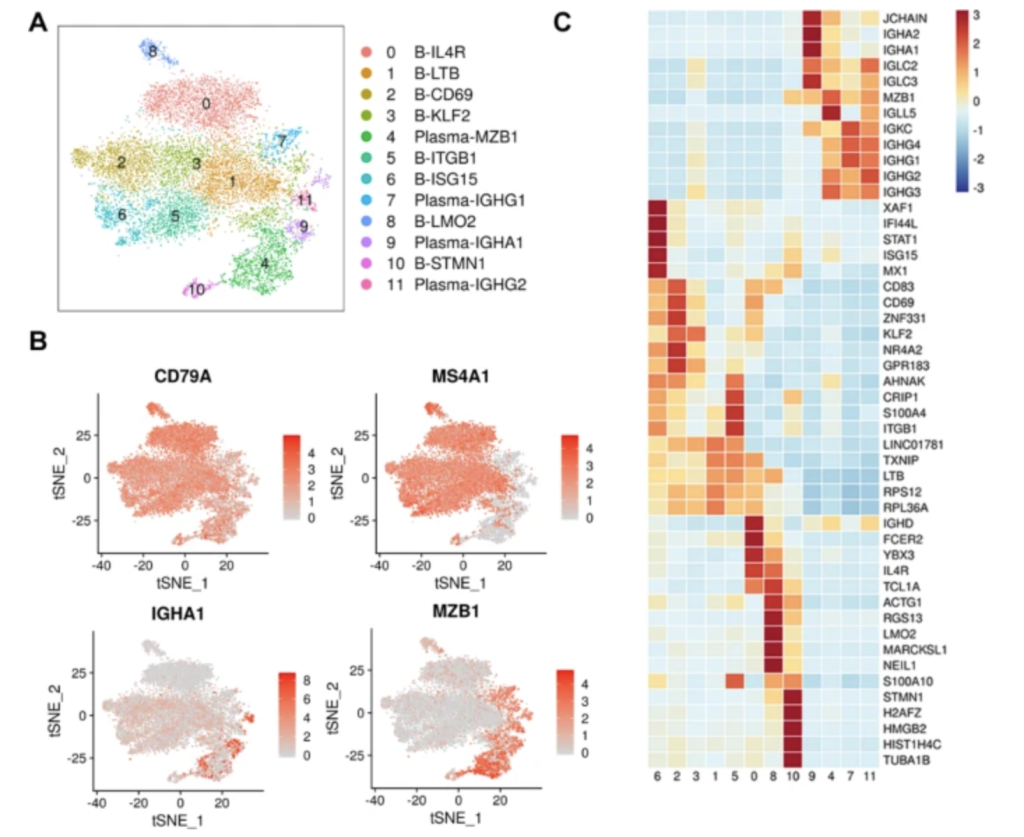by Kaykobad Hossain
Bladder cancer (BC) is the tenth most common cancer type worldwide. Muscle-invasive bladder cancer (MIBC) is the more aggressive type that is defined by invasion of the detrusor layer of the bladder and concurrent metastasis to adjacent organs and associated with poor prognosis. B cells have been reported to play vital role in tumor suppression and tertiary lymphoid structures (TLS) are involved in recruiting immune cells to tumor microenvironment (TME).
In this study, the researchers have performed single-cell RNA sequencing (sc-RNA-seq) to investigate the heterogeneity of different B cell population in bladder cancer tissue and IHC and IF staining to map TLS morphology in MIBC. They analyzed tumor cells from 12 BC patients, including 7 MIBC, 3 NMIBC, 9 normal tissue, 4 peripheral blood mononuclear cells (PBMC) and 3 lymph nodes, a total of 179,769 cells, for sc-RNA-seq.
The results showed significantly higher infiltration of B cells in MIBC with an elevated expression of B-cell marker CD19. They re-clustered 11,612 B-cells to investigate the transcriptomic heterogeneity in B cells and identified 8 B-cell subtypes and 4 plasma cell subtypes. Some of the B-cell subtypes include germinal center-associated B-cell, interferon-stimulated B-cell and B-KLF2. The IHC and IF staining showed presence of TLS in MIBC which are distinguished by a central region of B cells (CD19+) that forms a follicular structure of a germinal center and surrounded by T-cells. In addition, the researchers developed a risk prognosis model to determine the relationship of presence of different B-cell subtypes and prognosis of MIBC patients, where the results showed that infiltration of most of the B-cell subtypes, such as interferon-stimulated B-cell, was favorable to better prognosis.
In short, the higher infiltration of B-cells into the tumor in BC patients are linked with more aggressiveness of the tumor, however, B-cells infiltration in the TME results in favorable prognosis in most of the patients.
Continue your reading here:
Single-cell sequencing reveals the heterogeneity of B cells and tertiary lymphoid structures in muscle-invasive bladder cancer. J Transl Med. 2024 Jan 12;22(1):48. doi: 10.1186/s12967-024-04860-1

